German Foreign Minister Frank-Walter Steinmeier arrived in Tehran on October 17 to attend the core group meeting of the Munich Security Conference (MSC). The visit comes amid host of foreign officials paying visit to Iran following a July 14 JCPOA deal reached between Iran and the 5+1 countries which is expected to pave the way for more economic and political ties between Iran and other countries.
Germany has long historical background of relations with Iran which enjoys a less adverse dossier compared to some western states such as Britain, France and of course the United States. Yet, Berlin has also taken a number of unfriendly steps in recent decades which needs a review and reconsideration if the relationship between the two nations is to boost.
The nuclear issue and all controversies revolving around it could be avoided if Germany’s Siemens had kept commitment to its pre-1979 contract with Iran in finishing Bushehr nuclear power plant after the Revolution. But the company’s political move was a piece in a puzzle of such lack of commitments along with other examples like Iran’s share in Mercedes Benz or a nuclear-related factory.
Right after the Islamic Revolution of 1979, Iraq’s former dictator Saddam Hussein invaded Iran stirring a war which lasted for eight years and claimed hundreds of thousands of lives of innocent people. One of most tragic incidents during these years of war were chemical attacks by Saddam’s forces against Iranians in Sardasht and other cities and even Iraqis in Halabja. The consequences of the use of illegal chemical weapons were so bitter that are still remembered by the public in Iran and those suffering its injuries are still kept in special hospitals in Tehran and some other cities. It is a fact that majority of Iranians blame Germany for providing Iraq’s dictator with the chemical weapons.
On April 10, 1997, A German court issued a controversial verdict against Iran accusing the Islamic Republic of assassination of a number of Iranian oppositions in a case known as Mykonos Court. The politically-motivated verdict was based on fabricated evidence and was used as means of pressures against Iran when Germany expelled Iranian diplomats and summoned its own ambassador from Tehran; the move was followed by other EU ambassadors leaving Tehran to put more pressure on Iran. The move, however, as Leader of the Revolution had then said, resulted in a shame for EU countries as they themselves returned their ambassadors to Iran without forcing Tehran to anything. “German government is the loser in this political game and will pay a heavy price for that. I have ordered Foreign Ministry to document all these nonsense behaviors of these states so that they remain in the historical memory of the Iranian nation,” had said Ayatollah Khamenei at the time.
A similar behavior was repeated by Europeans in late 2011 when reacting to an attack by a number of university students against British embassy in Tehran, a group of European ambassadors led by the German envoy left Tehran as a sign of objection to the short take-over. However, not reaching a consensus over withdrawal of all embassies among EU members, all the ambassadors returned to Iran in silence.
To complete this puzzle, Germany was one of main countries hosting 50th anniversary of Mojahedin Khalq Organization just less than a month ago on September 25, 2015. The organization also known as MEK or MKO is a notorious terrorist group which has carried out hundreds of terrorist acts and assassination in Iran since the 1979 Revolution. Long hosted by Saddam’s Baathi regime in Iraq and later headquartered in France, the west-supported group seems to be strengthening its ties with Germany as well.
Just the way students in Tehran University demonstrated their protests during Frank-Walter Steinmeier’s speech in the university this Sunday morning by raising placards reading “We Won’t Forget Sardasht” or pointing to more than two thousand victims of chemical weapons in Iran, Iranians expect Berlin to show a real change in its policy towards Iran and at least do apologize for its previous behaviors. If Germany wants to find a better place in Iran and among the public opinion – who shape the market in terms of economy as well – Steinmeier should take the step forward and apologize for the hostile, adverse policies his country has long had towards Iran.
Hamid Reza Gholamzadeh has done his MA in North American Studies and his focus has been on US policies towards the Middle East. He also contributes to Mehr News as a columnist.


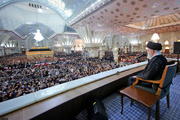
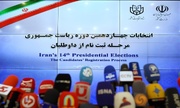
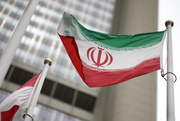
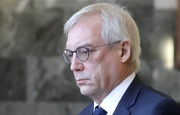
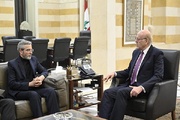
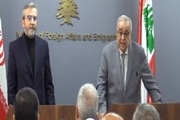
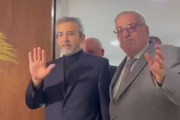
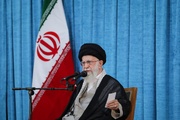

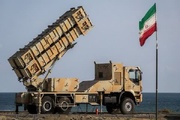
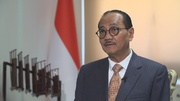
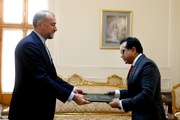

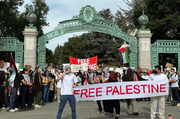
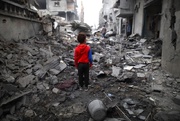
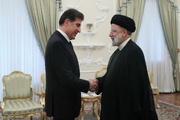
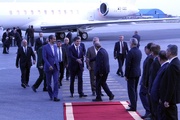
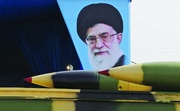


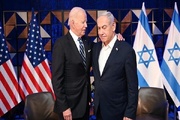

Your Comment